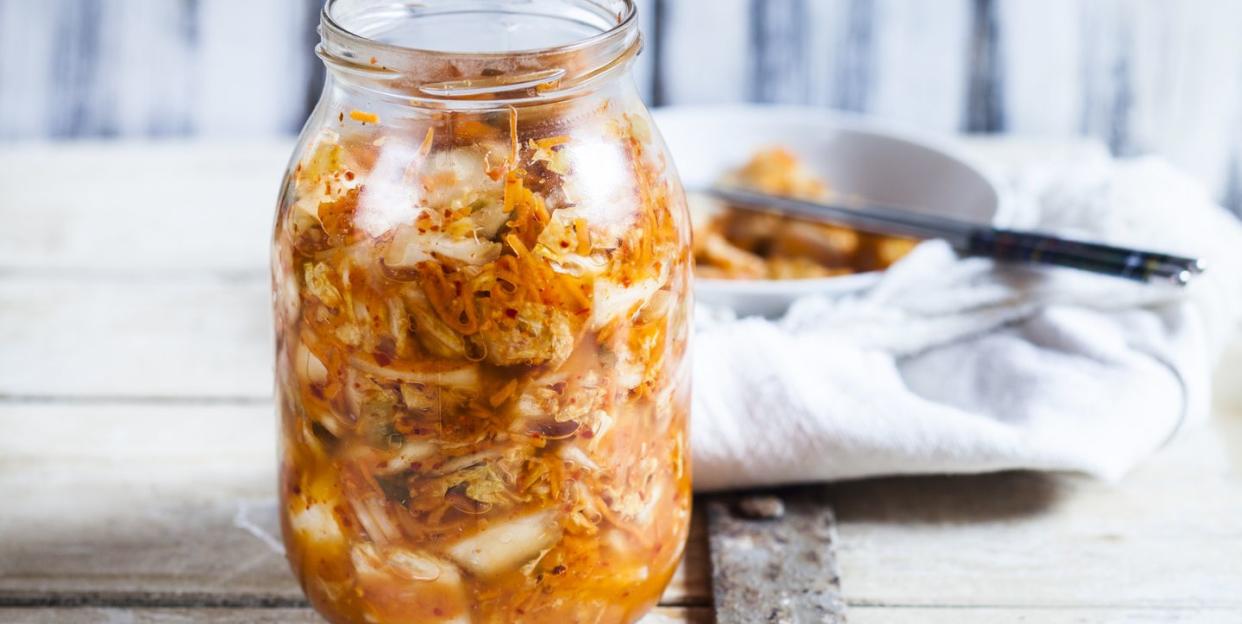If You're Struggling With GI Issues, a Probiotic-Based Approach Could Help

"Hearst Magazines and Yahoo may earn commission or revenue on some items through the links below."
Consuming more probiotics can help prevent GI issues during training, according to research.
Foods such as yogurt, pickles, tempeh, kimchi, and sauerkraut are great probiotic-rich options to add into your diet on a regular basis.
You don’t need to be part of the peloton to struggle with gastrointestinal troubles while cycling—professionals and enthusiasts alike can be subject to the same mix of bloating, gas, nausea, and digestive urgency.
The good news is that consuming more probiotics can help, according to a new study in the Journal of the International Society of Sports Nutrition.
Researchers recruited 27 male cyclists ranked as elite or category 1, and gave about half of them a multi-strain daily probiotic for 90 days, while the other cyclists received a placebo. At the start, they all completed a GI symptoms questionnaire and underwent tests for oxygen consumption and time-to-fatigue at 85 percent of max power. They also had inflammatory markers tested through a blood draw.
→ Get Bicycling All Access to stay on top of the latest health and nutrition news!
After three months, those in the probiotic group had lower incidence of nausea, belching, and vomiting, and decreased incidence of GI symptoms during training. No changes were shown in oxygen usage or fatigue, which means their performance remained consistent.
This is significant, the researchers noted, because elite cyclists often have to consume large quantities of food to make up for high calorie expenditure during training and racing. That can often lead to GI issues, but the study results suggest that those problems can be eased without changing training strategy or affecting performance.
Although the study is limited due to its modest number of participants, previous research has highlighted similar benefits of probiotics for those who exercise regularly. Plus, it seems to be a bi-directional relationship: Good gut health helps performance, and activity promotes better gut function.
Ready to load up on probiotic foods and supplements to improve your cycling performance? Much like training itself, it’s best to take a gradual approach to get your digestive system adapted to that new, beneficial bacteria, suggested dietitian Mary Purdy, R.D.N., author of The Microbiome Reset Diet.
A good first step, she told Bicycling, is to start introducing probiotic-rich foods into your meals, especially fermented foods such as yogurt, pickles, tempeh, kimchi, and sauerkraut. Because these are foods instead of supplements, you’ll also be getting fiber, vitamins, and minerals, she added.
“Like any dietary change, introduce them slowly, or you may get the opposite effect,” Purdy said, which means too much can actually increase GI troubles. “But over time, your body will begin to crave these foods, because they make you feel good.”
You Might Also Like

